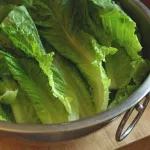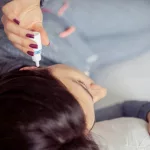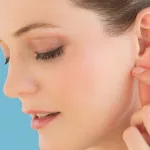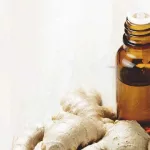:max_bytes(150000):strip_icc()/Health-Illustration-Composite-Sinus-Infection-V1-RECIRC-a1a9dfa129fc47899e15fbf2b279332f.jpg)
Why That Funky Smell Sneaks In
Let’s paint a picture for a sec… It’s Monday, you drag yourself out of bed, shuffle to the mirror, and there it is—again: that odd, way-too-bold smell lingering in your nose (and if you’re unlucky, in your breath too). And you wonder, “Am I the only one who notices? Is everyone else just being polite?” Newsflash: if you’re reading this, you’re not alone. Sinus infection smell treatment is one of those un-glamorous but surprisingly common topics in health chats. And, trust me, if you leave it to ferment, it’s not going to just “magically” disappear.
Now, why does your nose suddenly smell like last week’s trash bin? The main culprit is usually a pesky sinus infection. But before you panic-Google for hours, let’s break it down simply (and I promise, no textbook lingo—unless we have to, and then I’ll explain in plain English).
Is It Bacteria or Just Mucus Gone Wild?
Picture your sinuses as small, air-filled pockets in your head. Normally they’re all chill—filtering air, catching dust. But sometimes those passages get blocked (hello, stubborn colds, allergies, or random dust bunnies). This blockage means mucus can’t drain. And when mucus hangs around too long, bacteria move in, start a germy party, and…well, they stink things up. Imagine leftovers in your fridge for a bit too long—same vibe, except it’s in your nose.
Here’s a funny (not so funny) story: A friend of mine, Jess, kept ignoring her mild sniffles after a cold. A week later, she swore she could smell rotten eggs everywhere she went. Turns out, her blocked sinuses became a secret hangout for bacteria—classic case of sinus infection smell treatment needed, stat. (Moral: Don’t be Jess.)
Could Allergies or Polyps Be the Culprit?
Sometimes, it’s not even bacteria causing drama—it’s allergies or tiny nasal polyps (those are harmless growths, but boy, can they block things up). Allergies make your body overproduce mucus and inflame your sinuses. Polyps do their own blockage magic and, together, they create a super cozy space for bad smells and thick mucus. Either way, you get that unmistakable odor… like funky gym socks wearing cologne.
Quick Comparison: Viral vs. Bacterial Smells
| Type | Common Signs | Odor Vibe |
|---|---|---|
| Viral (from a cold) | Clear runny nose, mild pressure | Subtle, musty |
| Bacterial | Thick yellow/green mucus, fever | Strong, rotten—like spoiled food |
Does your current situation sound familiar? You might already see which camp you’re in. (If you’re not sure, you’re definitely not alone… figuring out how to get rid of bad smell in nose naturally often starts with sorting out what’s behind the smell.)
Spotting the Signs Early On
Okay, let’s talk symptoms before the smell takes center stage in your life (and keeps you wondering if everyone else in the grocery store can smell it, too). Early is always better than late when it comes to sinuses. Seriously, your nose does not want to be ignored.
What Does Sinus Smell Really Feel Like?
It’s not just the weird odor—though that’s annoying enough on its own. Usually, it’s paired with things like a stuffy nose that never clears, achy face (especially around the cheeks and eyes), and a taste in your mouth that’s… let’s just say, “unpleasantly memorable.” It’s the classic sinus infection party: you’re the unwilling host, and bacteria are the guests who overstay their welcome.
Not to gross you out, but sometimes a sinus infection can even make everything you taste feel “off.” As a reader once shared with me, she spent a week convinced her coffee had gone bad, only to realize her own nose was to blame. Relatable? You’re not losing your mind—it’s genuinely a thing, according to research on sinusitis symptoms and recovery.
When Bad Breath Joins the Party
Oh yes, we can’t forget the halitosis plot twist. Sinus infections cause mucus—sometimes green, sometimes yellow, occasionally both (bonus points for grossness)—to drip down your throat in what’s fancily called “postnasal drip.” All that festering goo is full of odor-causing bacteria, making your breath smell… uhm, not minty. (If you’ve ever wondered why mints just don’t cut it, now you know.)
By the way, if you’re curious about ways to address this directly, you’ll want to check the practical tips from How to get rid of bad smell in nose naturally. Some simple changes can make a world of difference—trust me, my own sibling swears by the morning saline rinse!
Everyday Anecdote Spot
Honestly, I’ll never forget when my cousin Anna complained to me about her own sinus “smell sabotage” during a long road trip. Three hours in the car, windows up… She said it was like her own nose had betrayed her. Once she started doing daily saline rinses (I’ll explain those in a sec), things got far less embarrassing, and eventually, she could stand her own company again.
Simple Ways to Flush Out the Funk
Let’s get down to it: What can you do right now—before you end up frantically cleaning your fridge, thinking the smell is coming from the veggie drawer (been there, done that)? Good news: some of the best sinus infection smell treatment methods are totally natural, cheap, and you can do them at home.
Start with Saline Rinses—Your Nose’s Best Friend
I used to think the whole “neti pot” thing sounded intense. But give it a try (even once) and you’ll see: it’s like a mini spa day for your sinuses. Grab a pre-made saline solution or mix your own—boil water, let it cool, add salt and a pinch of baking soda. Then (gently!) flush your sinuses. This literally washes out trapped bacteria, allergens, and gunk that’s creating those nasty odors.
Tip: Make sure you use distilled or boiled water. No one wants to swap a stinky nose for something worse. Plus, don’t overdo it—once or twice a day is plenty. For a more step-by-step guide on tackling sinus symptoms fast, see How to get rid of a sinus infection in 24 hours naturally. (Don’t be surprised if you keep a neti pot permanently on your bathroom shelf… so many people do!)
Boost with Hydration and Rest
Obvious, yes, but hear me out. Drinking plenty of warm fluids (herbal tea, broth, or even just lemon water) helps to thin out stubborn mucus and keeps it moving. Stagnant mucus is stinky mucus—science and common sense agree. Rest is the other ingredient. If you keep pushing through without giving your body a fighting chance, your immune system just won’t catch up. So yes, cancel the extra Zoom meeting, drink up, and kick back a bit—doctor’s orders.
Actual example: The last time I ignored this advice, I ended up streaming five hours of daytime TV, Kleenex box in hand, and wishing I’d just made that cup of tea from the start.
Natural Remedies Table
| Remedy | How It Helps | Quick Tip |
|---|---|---|
| Steam Inhalation | Loosens mucus, eases pressure | Add eucalyptus or peppermint for extra relief |
| Honey-Lemon Tea | Soothes irritated throat, thins mucus | Avoid if you have allergies to pollen or honey |
| Humidifier | Keeps air moist, prevents sinus drying | Clean weekly to avoid mildew or mold |
Ever tried one of these natural tricks? If not, why not start tonight? Wrap your hands around a warm mug… or just hang your head over a bowl of steam (with a towel, old-school style). Feels oddly comforting when you’re battling sinus funk. And, if you want more, there’s always the deep-dive on How to get rid of bad smell in nose naturally, packed with easy lifestyle and hygiene hacks.
When to Level Up with Meds or Docs
Let’s be real: if you’ve tried all of the above and your symptoms are still clinging on after ten days, it’s probably time for plan B. Persistent sinus infection smell can mean there’s a heftier bacterial infection, and you might need antibiotics or prescription-strength meds. Likewise, if the odor gets super intense, you feel severe facial pain, develop a fever, or get a wicked headache—don’t tough it out alone. Bad sinus infections can sometimes spiral into nastier things (no scare tactics here, just the voice of experience and research on long-term sinus complications).
Do not pass “Go”—call your healthcare provider! Also, keep this link handy if you’re in need: How to get rid of a sinus infection in 24 hours naturally. Fast action = faster breathing… and you’ll spend way less time wondering what gremlin has taken up residence in your nose.
Keeping the Smell Away for Good
Okay, suppose you’ve tamed the beast. Your nose and mouth are finally clear… Do you ride off into the odor-free sunset? If only it were that easy! If you don’t tweak a few habits, sinus infections—and that smell—can come back. So let’s lock in those changes for the long haul.
Dodge Triggers Like a Pro
Here’s a secret: lots of sinus woes are rooted in your environment. Allergies, smoke, dry air, even certain foods can set off another round. I once spent a spring season oblivious to the pollen slowly undoing all my progress (mask up, keep windows shut, and yes, maybe avoid that open-air yoga session if you’re super sensitive).
Air filters help. Humidifiers are your friend, especially if you live somewhere winter = dry as toast. If you have pets, bathe them more often, and try not to kick up too much dust when cleaning. Your nose will thank you (and your partner/roommate probably will too).
Build Habits That Help You Breathe Easy
It’s not about being perfect—just a few small upgrades. Wash your hands, stay hydrated, keep up with allergy meds if you’re prone. Oh, and take it from someone who’s been there: a little proactive nose cleaning, like that daily saline rinse we talked about, goes a long way. These staples are the backbone of sinus infection smell treatment you can stick with through every season.
For more tips on getting your fresh-air lifestyle on autopilot, check out How to get rid of bad smell in nose naturally. And if ever an infection sneaks up (as they sometimes do), you know where to find How to get rid of a sinus infection in 24 hours naturally for a field guide in a pinch. It’s way less overwhelming when you know you’ve got a plan.
Prevention Checklist
- Drink plenty of water — aim for 8 glasses a day.
- Wash your hands before touching your face.
- Use saline rinses after exposure to crowds or allergens.
- Keep your workspace and bedroom dust-free.
- Skip smoking (including secondhand smoke) whenever possible.
- Keep up with allergy treatments if prescribed.
Conclusion
If you’ve made it this far, trust me—you’re not just “dealing” with sinus infection smell treatment, you’re getting proactive. It’s a strange, sometimes embarrassing issue, but honestly, it’s also super fixable with a little know-how, patience, and maybe a bit of trial and error. Don’t settle for air that smells like old gym shoes or rotten eggs every morning.
Start with some small, simple changes—like saline rinses, warm teas, and better air at home. And, most of all, listen to your body. That funky smell isn’t just “your new normal.” It’s your nose (and sinuses) asking for a little TLC—nothing weird about that!
Try one tip today; see how you feel tomorrow. Share your best remedies with a friend (because who hasn’t had that one rough week of blocked sinuses?!). And if you ever need to act fast, you’ve got handy guides like How to get rid of a sinus infection in 24 hours naturally just a click away. Here’s to fresher mornings, easier breathing, and finally—finally!—not blaming the fridge for every weird smell in the house.


















Leave a Reply
You must be logged in to post a comment.